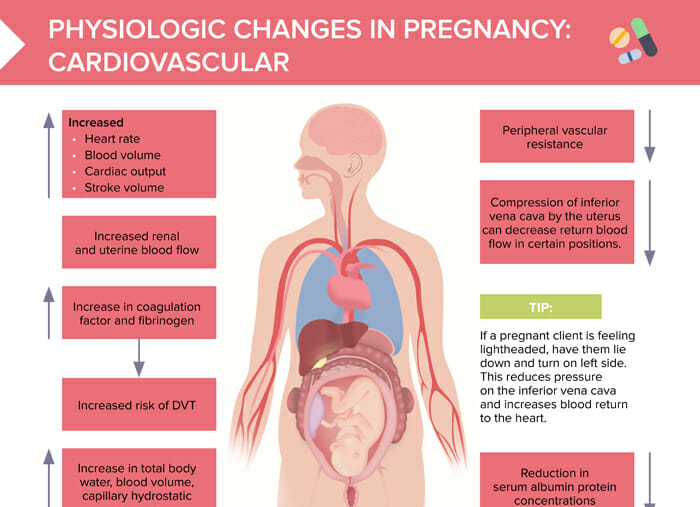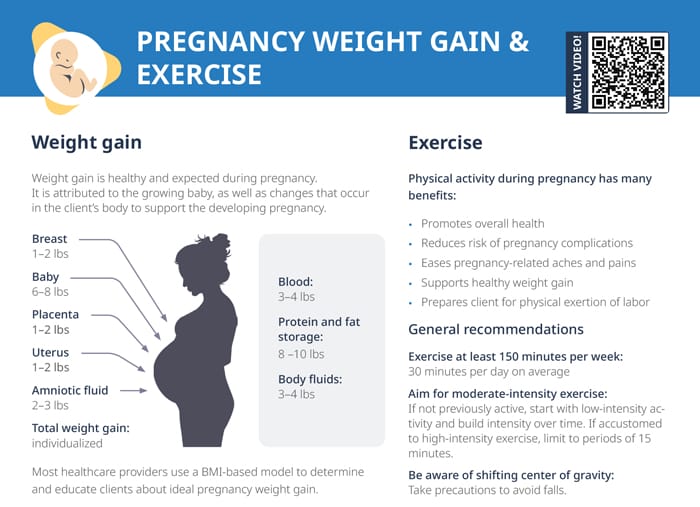How much weight should you gain during pregnancy?
Next to 6–8 lbs attributed to the baby, there are changes in the pregnant body that account for more weight gain:
- Breast 1–2 lbs
- Placenta 1–2 lbs
- Uterus 1–2 lbs
- Amniotic fluid 2–3 lbs
- Blood 3–4 lbs
- Protein and fat storage 8–10 lbs
- Body fluids 3–4 lbs
Total healthy weight gain is individualized.
Related videos
Pregnancy weight gain chart
Most healthcare providers use a BMI-based model to determine and educate clients about ideal pregnancy weight gain. Research is evolving around the validity of BMI as a measure of health and the significance of “excess” weight gain during pregnancy.
| Pre-pregnancy BMI | Pregnancy weight gain | |
| Less than 18.5 | Underweight | 28–40 lbs |
| 18.5–24.9 | Normal weight | 25–35 lbs |
| 25–29.9 | Overweight | 15–25 lbs |
| Over 30 | Obese | 11–20 lbs |
Exercise during pregnancy
Benefits of exercise during pregnancy
- Promotes overall health
- Reduces risk of pregnancy complications
- Eases pregnancy-related aches and pains
- Supports healthy weight gain
- Prepares client for physical exertion of labor
General recommendations
- Recommended amount: > 150 minutes per week, 30 minutes a day
- If not previously active, start with low-intensity activity and build intensity over time.
- If accustomed to high-intensity exercise, limit to periods of 15 minutes.
- Take precautions to prevent falls (shifting center of gravity!)
- Prolactin increases flexibility in joints: Take care to not over stretch.
Recommended safe exercises during pregnancy
- Brisk walking
- Stationary cycling
- Yoga, Pilates, low-impact aerobics
- Swimming
- Jogging
- Low-impact weight training
Exercises to avoid during pregnancy
- Lying flat on back
- Crunches and situps
- High-intensity interval workouts
- Contact sports
- Activities with high risk of falling
- Hot yoga or other excessive heat
- Scuba diving
Nursing tips
Nurses should be aware of anti-fat bias in healthcare and how it may affect pregnant clients. Educate about healthy weight gain while providing client-centered care:
- Screen all pregnant clients for history of eating disorders.
- Discuss what weight and weight gain means to the client.
- Ask how they want to discuss their pregnancy weight gain.
- Respect client’s desire to not discuss weight, if applicable.

